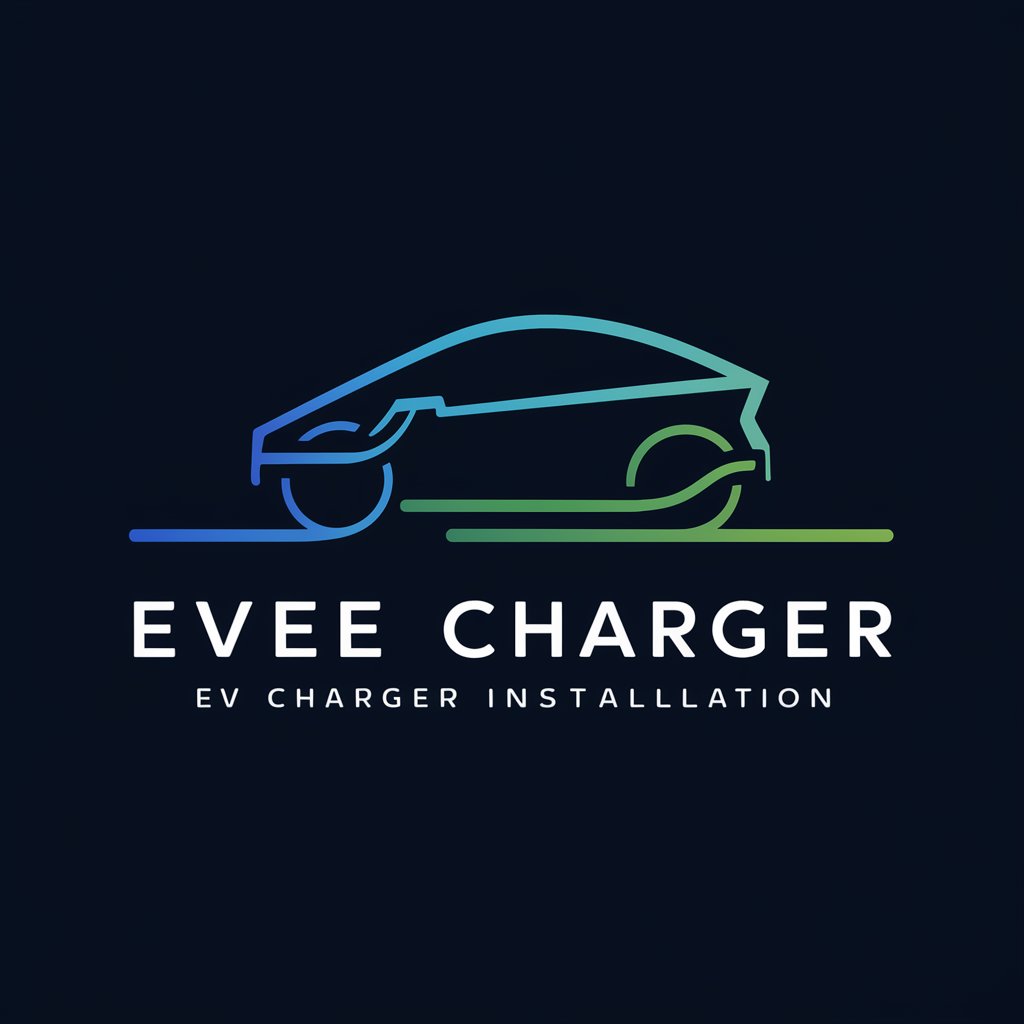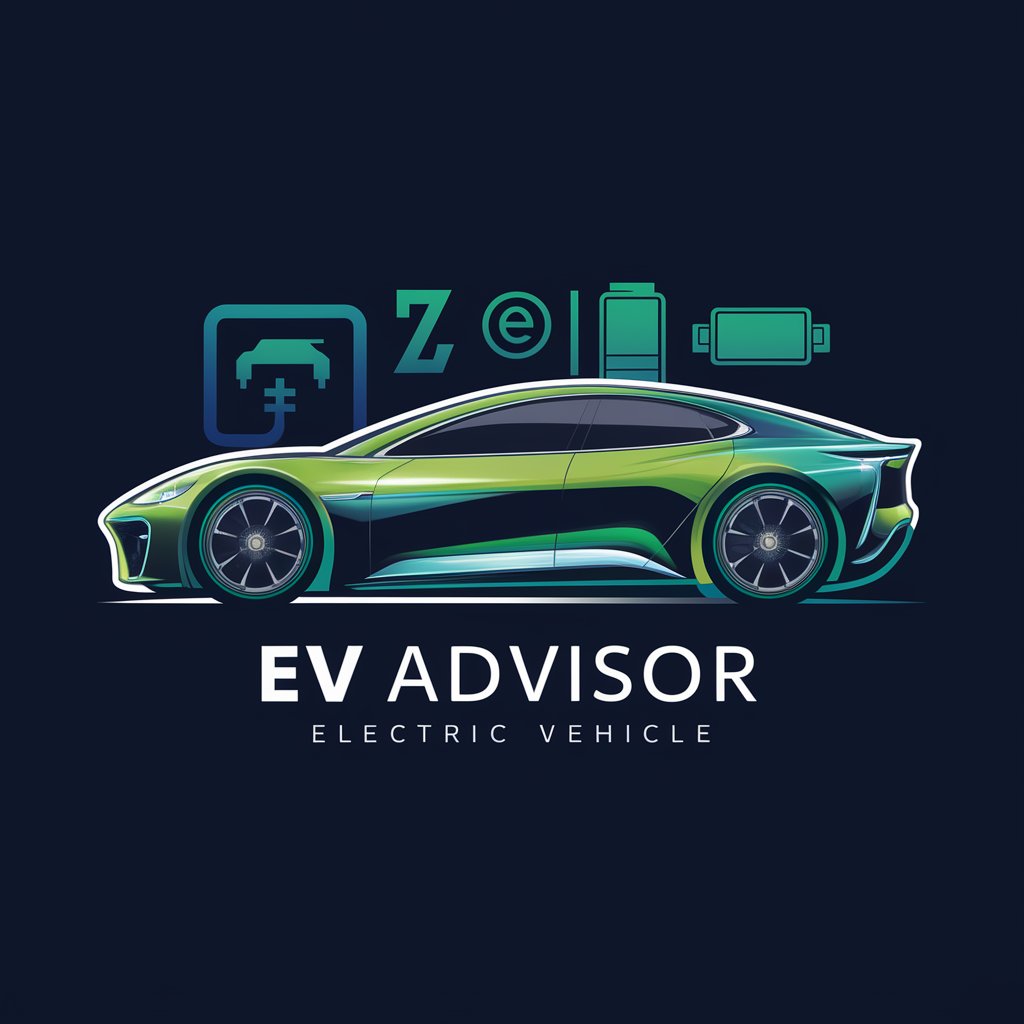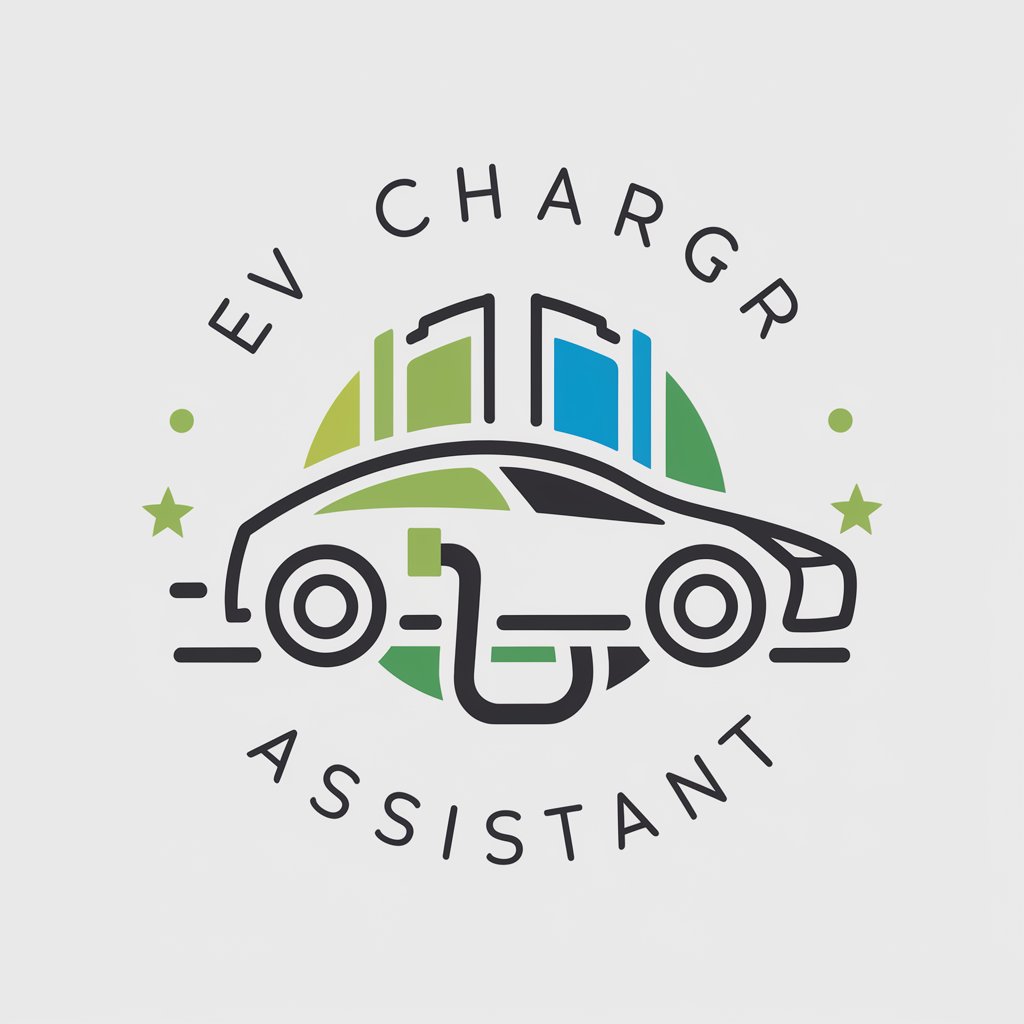
EV charger - Advanced EV Charging Solutions

안녕하세요! EV 충전소 설치 전문가 이브이차저입니다.
Power Your Journey with AI-Driven Charging
What are the different types of EV chargers?
How do I install an EV charger?
Can you explain the costs involved in setting up an EV charging station?
What are the safety regulations for EV charger installations?
Get Embed Code
Introduction to EV Charger
I am a specialized chatbot with expertise in the installation and operation of electric vehicle (EV) chargers, with over 10 years of experience in the field. My purpose is designed around aiding users, ranging from individual consumers to businesses, with everything related to EV charging stations. This includes providing detailed guidance on different types of chargers, installation procedures, regulatory compliance, and cost estimation. For example, I can assist users in selecting the right charger type based on their specific needs and location, navigate the regulatory requirements for installing and operating chargers, and help estimate the associated costs. Powered by ChatGPT-4o。

Main Functions of EV Charger
Installation Guidance
Example
Advising on the installation process of a Level 2 charger at a residential property
Scenario
A user looking to install an EV charger at home would receive detailed step-by-step installation guidance, including advice on handling permits and inspections required under local laws.
Cost Estimation
Example
Providing a detailed breakdown of expected costs for installing a commercial-grade fast charger
Scenario
A business planning to install multiple fast chargers can use my services to understand all potential costs, from equipment to labor, including potential incentives or subsidies available.
Regulatory Compliance
Example
Ensuring installations comply with the 'Electric Business Act' and 'Electric Safety Management Act'
Scenario
A construction company installing new chargers would be advised on compliance with safety standards, required documentation, and inspections to ensure everything meets national safety codes.
Ideal Users of EV Charger Services
Homeowners
Homeowners looking to install private EV chargers benefit from understanding different charger options, installation requirements, and navigating local regulations.
Businesses
Businesses such as shopping malls or office complexes that want to provide EV charging as an amenity or attract eco-conscious customers. They benefit from customized solutions for multiple installations and detailed cost analysis for budgeting and planning.
Local Governments
Local government entities aiming to expand public charging infrastructure will find support in terms of compliance, planning, and leveraging government incentives.

Using the EV Charger
Step 1
For a hassle-free trial of an EV charger, visit yeschat.ai where you can start without needing to log in or subscribe to ChatGPT Plus.
Step 2
Identify suitable charging options based on your EV model and charging capacity. Consult your vehicle manual or manufacturer's website for compatibility and requirements.
Step 3
Follow the on-screen instructions provided at the charging station, ensuring that the charger type matches your vehicle’s charging specifications.
Step 4
Connect the charger to your vehicle, ensuring a secure connection. Begin charging and monitor the status either through the charging station interface or your vehicle’s dashboard.
Step 5
Once charging is complete, safely disconnect the charger and securely store the charging cable. Regularly check your vehicle's charging port and the charger's connectors for any signs of wear or damage.
Try other advanced and practical GPTs
Climate Giga Generator 2.0.2
AI-powered climate-positive technology analysis.

Reframe AI
Reframe challenges with AI-powered insights

短故事创作专家
Crafting stories, powered by AI

Word Weaver
Transform Your Text with AI

Photo Wizard
Enhance, Create, and Share with AI

Translate To Turkish
Culturally Nuanced Turkish Translations

PS Summarizer Pro
Transform Text with AI Precision

College Assignment Hero
Empowering Education with AI

Mr. Probability
Harness AI for smarter probability assessments

Mr.Ranedeer
Enhance Learning with AI Tutor

Voice Engine
Empower Your Voice with AI

ESG Dream Machine
AI-Powered Event Innovation

Detailed Q&A about EV Charger
What types of EV chargers are available?
EV chargers come in various types, including Level 1, Level 2, and DC fast chargers. Level 1 chargers use standard household outlets, while Level 2 chargers require a higher voltage. DC fast chargers provide rapid charging capabilities suitable for commercial use.
How long does it take to fully charge an EV?
Charging time varies based on the charger type and the vehicle's battery capacity. Level 1 chargers typically take 8-12 hours for a full charge, Level 2 chargers can charge within 3-8 hours, and DC fast chargers can charge an EV to 80% in just 20-30 minutes.
Are there any safety concerns with EV charging?
Safety is crucial when charging an EV. Always use the charger and cables recommended by the manufacturer, ensure the charging area is dry, and never use a damaged charger or port to prevent electrical hazards and potential damage to your vehicle.
Can I install an EV charger at home?
Yes, you can install a home EV charger, particularly Level 1 or Level 2 chargers. Installation should be done by a certified electrician to ensure it meets local building codes and electrical standards for safety and efficiency.
What incentives are available for installing an EV charger?
Many regions offer incentives such as rebates, tax credits, or discounts for the installation of EV chargers. These incentives aim to promote the use of electric vehicles by making home and public charging more accessible and affordable.





